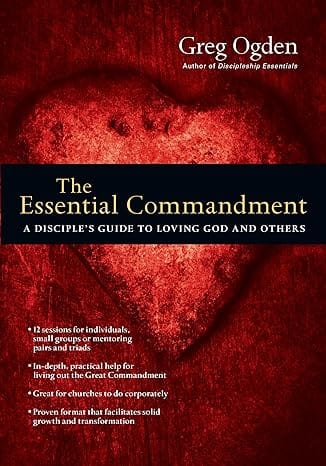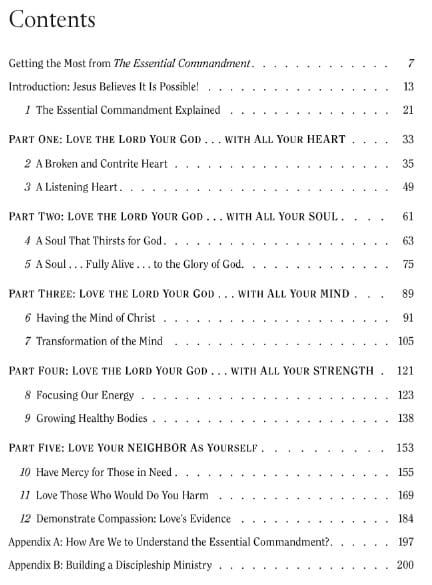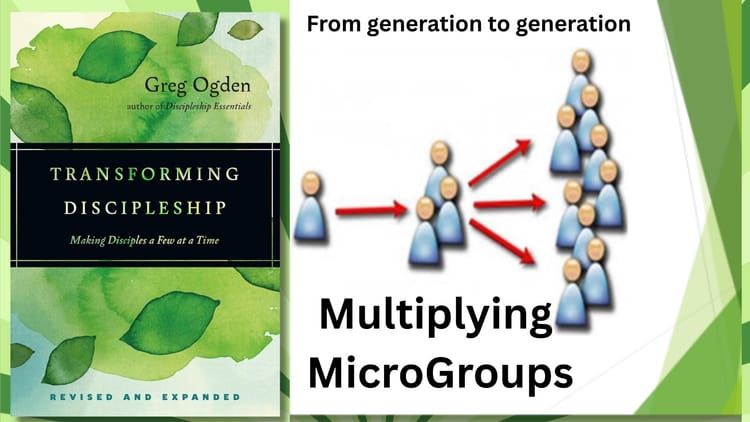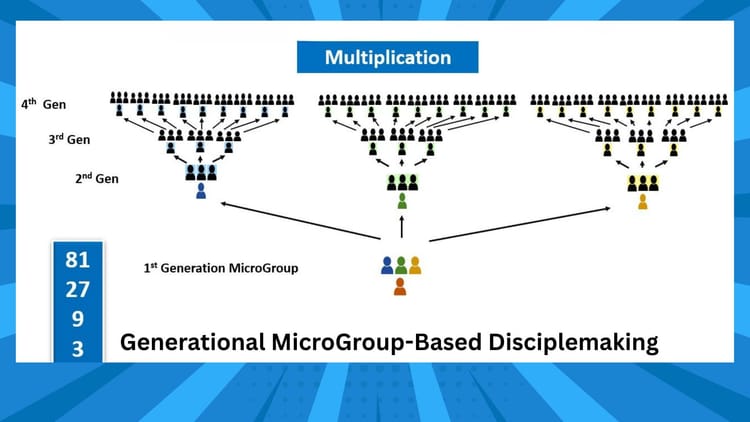Jesus Actually Thinks We Can Become Like Him

Would Jesus ask something of us that couldn’t be done?
At the center of all that the Biblical commands and the very core of “everything I have commanded you” (Matthew 28:19), Jesus declares that we are to love God with everything we’ve got and to love our neighbors in the same way that we cherish ourselves. Really? Is this possible?
The energy behind the writing of this curriculum comes from an insight that is quite frankly embarrassing. It is embarrassing because I should know better. What I am about to tell you will not seem very dramatic at first. In fact, every time I have shared this personal “revelation” with others I have been sheepishly apologetic. Here is the amazing truth: Jesus actually thinks we can become like Him. Jesus actually believes that it is possible for frail and deeply flawed human beings to have our complete affection focused on God and others.
The key word here for me is “possible.” I had unconsciously given up the possibility of actually doing what Jesus had commanded. No, I never consciously thought or said, “Jesus, I think you are idealistic dreamer or you can only expect so much from flawed humanity.”
I was not even aware that I had dismissed Jesus’ belief in me. What had taken over my spirit in my attempt to be authentic was to focus on where I had fallen short of Jesus’ call. In my desire to make sure that I was not deceiving myself about my capacity for sin, I had given up the upside possibility that the character of Jesus could actually take over my life.
The Impossible Possibility
Because of this insight, I have come to realize that we need to hold two truths in dynamic tension. On the one hand, we need to be rigorously honest about our short comings. Part of what it means to live in the light of Christ is to allow Him to shine that light in the hidden regions of our soul. Yet at the same time we need to hold to the compelling vision that this same light illumines our path so that we can live into our potential of being God and people lovers.
The Jewish philosopher Martin Buber suggests that we should go around with a piece of paper in each pocket.
On one piece is written,
“I am dust and ashes”
and on the other,
“For me the world was created.”
Yes, we are finite and broken people as well as those who have been redeemed to reflect the Redeemer.
Jesus would not ask us to be and do something unless it was possible.
We can become the bodily dwelling place of Jesus who lives his life out through us.
The vision that Jesus has placed before us comes in the form of his summary statement as to what our life agenda is to be about. In response to one of the “teachers of the law” seeking to know which commandment was most important, Jesus responded with what we have come to call The Great Commandment,
“Love the Lord your God with all your heart and with all your soul and with all your mind and with all your strength. The second is this: ‘Love your neighbor as yourself. There is no commandment greater than these” (Mark 12:30-31).
He didn’t follow this up by saying,
“I know I am asking a lot, but do the best you can. I know you will never fully approximate this high and lofty goal, but it is still worth striving for.”
No, I added this myself. In my spirit I washed out the possibility that this could actually be. I said,
“I know the guy dwelling in this body all too well. Not a chance that this weak and feeble individual could ever approximate Jesus’ expectation.”
Yet, something uplifting started to happen, when my spirit began to rehearse a different message, “Jesus thinks this is possible.” I found a new energy released in me. A buoyancy of spirit beckoned me with the thought that I could live more deeply into the possibility of loving God with all my heart, soul, mind and strength, and to love my neighbor as myself.
With Jesus, it is possible to “love your enemies and to do good to those who persecute you.” This is not just for that rare person who seems to have tapped in a pool of grace that the rest of us have not been able to find.

The Paradox
Herein lies a paradox of being a Christ follower. We need to embrace what appears to be two competing truths about ourselves if we are to approximate what Jesus believes is our potential as Great Commandment people.
The irony is that living up to the potential of Jesus’ expectation is only possible if we dwell in the vortex of the seeming contradiction of our deeply corrupted spirit and our redeemed promise.
On the one hand, if we are not deeply in touch with our dark side, we will miss the incredible grace that claimed us while we were in full rebellion against God and into our own self-exaltation.
Like the alcoholic who starts down the road to redemption by saying, “we admitted we were powerless over alcohol…”, just so the believer acknowledges without qualification,
“we admit we are powerless over sin.”
Left to myself, I don’t “love God nor my neighbor”, in fact, I hate God, who crowds my autonomy, and I don’t really care what happens to my neighbor, as long I am taken care of.
Only when we see the extent of how corrupt our spirit is through and through will we rejoice with Paul’s words,
“But because of his great love for us, God, who is rich in mercy, made us alive with Christ even while we were dead in our transgressions…” (Ephesians 2:4-5).
Without an awareness of our need for grace, we will simply turn the Great Commandment into a new law that we will attempt to fulfill by our own effort. This summary commandment of Jesus does serve the dual purpose of the Law. The apostle Paul tells us that the law was given to show us how far short we fall before the holiness of God (Romans 7:13).
It serves its purpose by driving us to our knees. Just try keeping the command to love God and our neighbors in our own strength.
We will not survive our own thought life for the next ten minutes.
So, in our study of the Great Commandment, we want to avoid Jesus’ commandment becoming simply a higher level law that will lead only to enslavement rather than freedom.
On the other hand, we don’t want to miss what is implicit in this command. Jesus thinks that living this truth is possible.
We walk carefully between the shoals of self-sufficiency by being in touch with our capacity for self-deception, yet at the same time energized by the new capacity that God’s grace has given us to become the redeemed people in whom Christ dwells.
Dallas Willard says it succinctly,
“Grace is opposed to earning,
but not opposed to effort.”
The apostle Paul on the one hand said of himself,
“I am the worst of sinners.”
(I Timothy 1:15-16)
On the other hand, he said that this awareness infused him with an energy and passion fueled by God’s grace that sent him across the known world. Here is how Paul brings these two truths together,
“For I am the least of the apostles and do not even deserve to be called an apostle, because I persecuted the church of God. But by the grace of God I am what I am, and his grace was not without effect. No, I worked harder than all of them—yet not I, but the grace of God that was within me” (I Corinthians 15:9-10).
- How does living with the reality that we are sinners who have been captured by grace create passion to live out the reality of the Great Commandment?
- Do you think that Jesus actually meant that we could love God and our neighbor?
- Does Jesus believe in us?

[Dallas Willard, The Great Omission. (Monarch Books, 2006), ?
Dallas Willard, Renovation of the Heart: Putting on the Character of Christ (Colorado Springs, CO: Navpress, 2002), 214.
Dallas Willard’s Website: http://www.dwillard.org/articles/
John Ortberg, Faith and Doubt (Grand Rapids, MI: Zondervan Publishing House, 2008), 42.





Member discussion